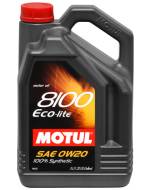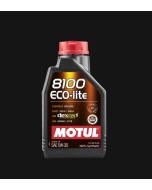We use cookies to make your experience better. To comply with the new e-Privacy directive, we need to ask for your consent to set the cookies. Learn more.
What is Low-Speed Pre-Ignition?

If you have a sporty car, a turbo-charged car, and especially if you are tracking your car or modifying it, more than likely you make sure that you are using a high quality oil, and changing it often. But now that Direct Injection is becoming more common, and especially more common on turbocharged cars, it turns out that the oil you use may be more important than ever.
There is a new issue that has come to light with high performance direct-injection engines, and that is low-speed pre-ignition, or LSPI. This is a phenomenon that happens at low engine speeds, and most commonly on engines that are cold, or not yet at full operating temperature. With the testing so far, what appears to be happening is that an element in the detergent package in the oil (sodium specifically) is interacting with fuel that can become mixed with the oil that is sitting on top of the compression rings which results in a massive detonation event which can cause damage. This is sometimes referred to as mega-knock, and it can be severe enough to cause engine damage instantly.
Some of the most comprehensive testing of this issue, and the amount to which it can be helped with a specific type of oil has been done by Lake Speed Jr. from Driven Oil, and Ben Strader from EFI University. If you are interested in learning more, here is a link to the best article that we have seen about what they found:
https://www.enginelabs.com/engine-tech/oil-composition-direct-injection-low-speed-knock/
What has happened since this has become more understood is that oil companies are starting to produce oils that are formulated specifically for turbocharged direct injection engines, and GM has actually come out with the Dexos1 Gen 2 specification for oils that will help to prevent LSPI. Motul has also come out with their Eco-Lite 8100 oil in 0w-20 and 5w-30 that are formulated for direct injection engines, and meet this specification.
We are going to do our best to stock as many Dexos1 Gen2 oils as well as stay on top of all of the latest information and testing in case any further improvements are made. And as always, don't hesitate to reach out to us with any questions that you might have.



